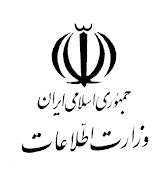Jan 17, 2009
Hamas over the weekend accused Palestinian Authority President Mahmoud Abbas of being responsible for the assassination of its interior minister, Said Siam. Siam, who was in charge of Hamas's security forces and militias in the Gaza Strip, was the most senior leader of the movement to be killed during Operation Cast Lead. He was killed Thursday during an air-strike on his brother's residence in Gaza City. The brother, Iyad, was also killed in the attack, as was Siam's son.
Salah Bardaweel, a Hamas legislator and spokesman, accused Abbas of playing a "major role" in the assassination of Siam and the military offensive against Hamas.
Siam was considered one of Fatah's fiercest enemies in the Gaza Strip. His Fatah rivals held him responsible for the death of dozens of Fatah members when Hamas seized full control over the Gaza Strip in the summer of 2007.
Upon hearing of Siam's death, several Fatah representatives in the West Bank expressed deep satisfaction, while others openly rejoiced. Fatah-controlled news Web sites published comments from Fatah supporters who went as far as thanking Defense Minister Ehud Barak for ordering the assassination of the top Hamas official.
Bardaweel claimed that Abbas loyalists in the Gaza Strip had been spying on Hamas leaders and members on the instructions of senior Fatah leaders in the West Bank.
He said that the information had been passed on to Israel so that it could launch attacks on Hamas members and institutions in the Gaza Strip.
"Abbas has been participating in the last [Israeli] military operation through his men in the Gaza Strip, who have been pointing out the homes of Hamas members," Bardaweel said. "We have no doubt that Abbas and his agents were involved in the assassination of Siam."
Bardaweel also claimed that Hamas had captured - during raids on the homes of Fatah activists - maps and other documents that detailed the locations of Hamas institutions and the addresses of some of the movement's top leaders.
"We arrested some of these Fatah people and they admitted that they had been gathering information at the request of the Fatah leadership in Ramallah," Bardaweel said. "They even provided us with the names of their Fatah handlers who were then passing on the information to Israel."
When Operation Cast Lead began three weeks ago, Hamas accused Abbas and Fatah of "collusion" with Israel. But this is the first time since then that Hamas has accused Abbas and his loyalists of helping Israel in its war against the movement.
Another Hamas representative, Ismail Radwan, claimed that Abbas and some Arab heads of state knew in advance about Israel's intention to attack the Gaza Strip.
"According to our sources, Abbas and some Arab regimes even encouraged Israel to overthrow the legitimate government of Hamas," he said. "They also encouraged Israel to kill senior Hamas figures like Said Siam."
Radwan reiterated Hamas charges that the military operation was primarily designed to bring Abbas and Fatah back to the Gaza Strip, from where they were kicked out in 2007.
"Abbas has formed an emergency room in his headquarters to prepare Fatah for returning to the Gaza Strip," the Hamas representative said. "But they won't succeed in achieving their goal."
In response to the allegations, Fatah officials in Ramallah said that Siam was killed thanks to information passed to Israel by one of his bodyguards.
"Hamas has been infiltrated by the Israelis for a long time," one official told The Jerusalem Post. "Hamas is full of spies and corrupt people who are prepared to do anything in return for a few hundred shekels."
But some Fatah operatives said over the weekend that they were "extremely disappointed" by the way Abbas and the PA had dealt with the IDF operation. They said that Abbas's behavior during the operation has caused severe damage to Fatah's reputation and credibility among the Palestinians.
One of the Fatah operatives, Hatem Abdel Qader, told the Post that Abbas and the Fatah leadership had failed to play an effective role to stop the offensive. He said that ongoing rivalries and bickering in Fatah had crippled the faction, preventing it from assuming its responsibilities toward the Palestinians.
"Fatah, which triggered the modern Palestinian revolution and led its national project for decades, has become incompetent in light of the threats facing the Palestinian people," he said. "All the demonstrations that took place in Jerusalem and the West Bank were organized by field activists and were not sponsored or led by the Fatah leadership."













No comments:
Post a Comment